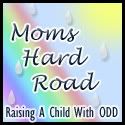Conduct disorder is a psychiatric category marked by a pattern of repetitive behavior wherein the rights of others or social norms are violated.
Symptoms include verbal and physical aggression, cruel behavior toward people and pets, destructive behavior, lying, truancy, vandalism, and stealing.[1]
Conduct disorder is a major public health problem because youth with conduct disorder not only inflict serious physical and psychological harm on others, but they are at greatly increased risk for incarceration, injury, depression, substance abuse, and death by homicide and suicide. After the age of 18, a conduct disorder may develop into antisocial personality disorder, which is related to psychopathy.[2]
Diagnosis:
The diagnostic criteria for Conduct Disorder (codes 312.xx, with xx representing digits which vary depending upon the severity, onset, etc. of the disorder) as listed in the DSM-IV-TR are as follows:
A repetitive and persistent pattern of behavior in which the basic rights of others or major age-appropriate societal norms or rules are violated, as manifested by the presence of three (or more) of the following criteria in the past 12 months, with at least one criterion present in the past 6 months:
Aggression to people and animals
often bullies people, threatens, or intimidates others
often initiates physical fights
has used a weapon that can cause serious physical harm to others (e.g., a bat, brick, broken bottle, knife, gun) (except for activities such as archery and hunting)
has been physically cruel to people
has been physically cruel to animals
has stolen while confronting a victim (e.g., mugging, purse snatching, extortion, armed robbery)
has forced someone into sexual activity
Destruction of property
has deliberately engaged in fire setting with the intention of causing serious damage.
has deliberately destroyed others' property (other than by fire).
Deceitfulness or theft
has broken into someone else's house, building, or car
often lies to obtain goods or favors or to avoid obligations (i.e., "cons" others)
has stolen items of nontrivial value without confronting a victim (e.g., shoplifting, but without breaking and entering; forgery)
Serious violations of rules
often stays out at night despite parental prohibitions, beginning before age 13 years
has run away from home overnight at least twice while living in parental or parental surrogate home (or once without returning for a lengthy period)
is often truant from school, beginning before age 13 years
The disturbance in behavior causes clinically significant impairment in social, academic, or occupational functioning.
If the individual is 18 years or older, criteria are not met for Antisocial personality disorder.
http://en.wikipedia.org/wiki/Conduct_disorder
Trista's Barn at Bell Treasures
11 years ago












No comments:
Post a Comment